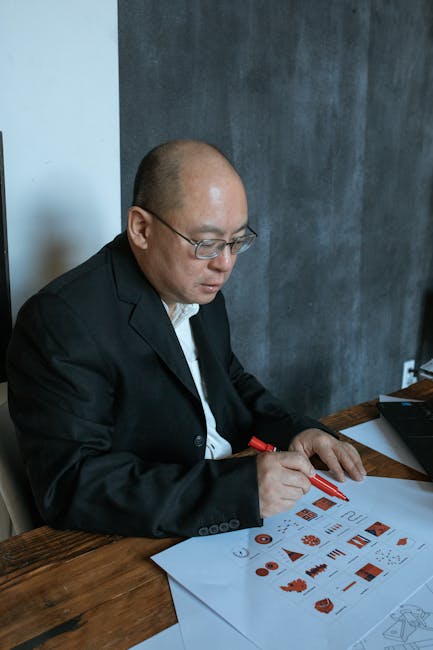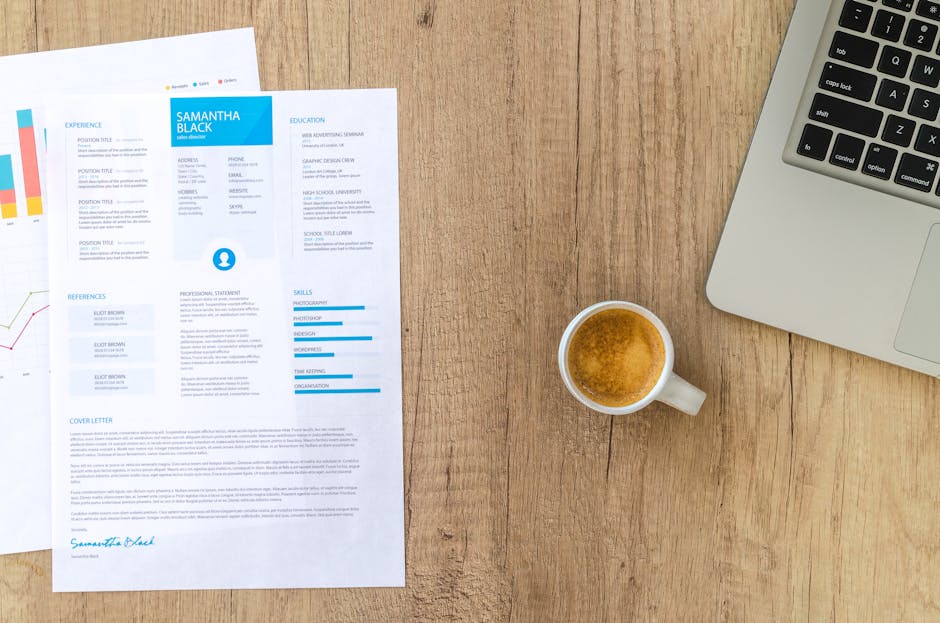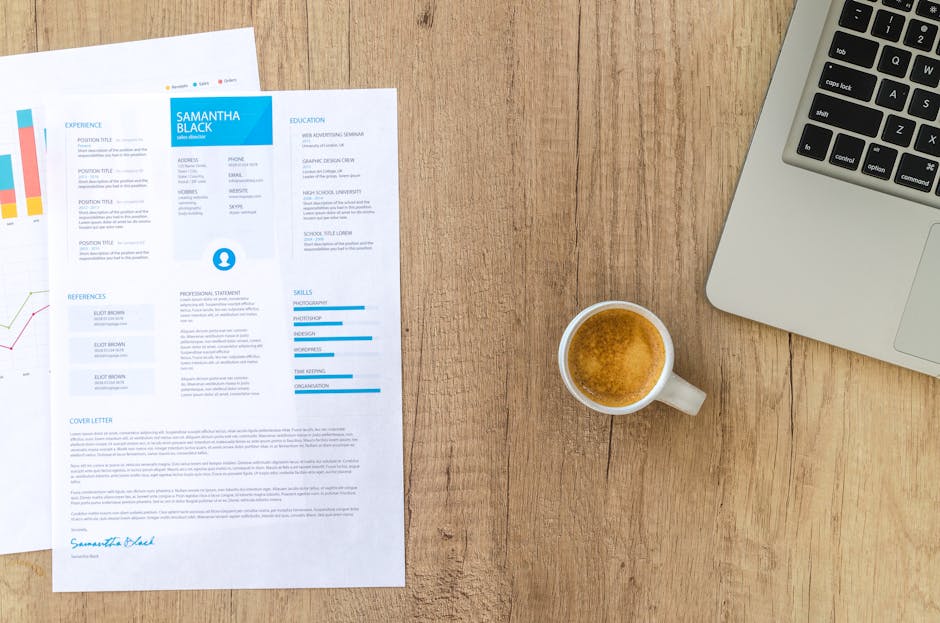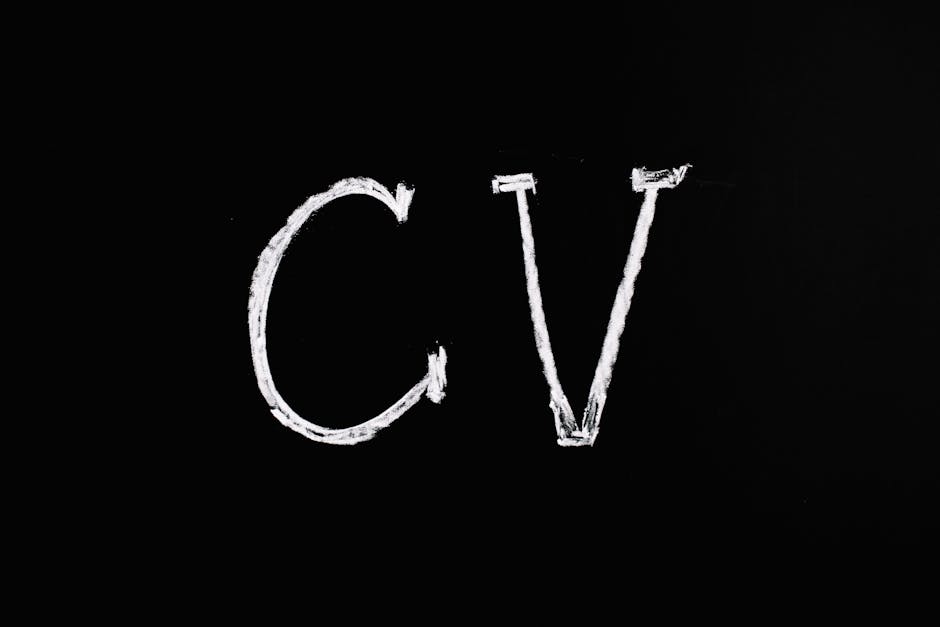📄 Resume vs CV: What’s the Difference? 🤔
When I first started applying for jobs after college, I was confused about the difference between a resume and a CV. They seemed so similar – weren’t they basically just different names for the same thing? As I dove deeper into my job search and did more research, I discovered there are actually some key differences between these two types of job application documents.

📝 The Basics: Resume vs CV
🗒️ What is a Resume?
A resume is a concise summary of your professional experience, skills, and education, typically limited to 1-2 pages. It’s tailored to the specific job you’re applying for, highlighting your most relevant qualifications. The goal of a resume is to quickly demonstrate to a potential employer that you’re a good fit for the role.
In my experience, a strong resume should include:
- Contact information
- A brief summary or objective statement
- Work experience (in reverse-chronological order)
- Education
- Relevant skills
- Optional sections like volunteer work, certifications, or interests
I’ve found that customizing my resume for each job application, using keywords from the job description and emphasizing my most pertinent experience, has helped me stand out to hiring managers and land more interviews.
📜 What is a CV?
CV stands for “curriculum vitae,” which is Latin for “course of life.” A CV is a comprehensive document that provides an in-depth overview of your professional and academic accomplishments. It’s common in academia, research, and medical fields, and is often used when applying for fellowships, grants, or teaching/research positions.
A CV can be much longer than a resume (3+ pages), and typically includes:
- Contact information
- Education (including thesis/dissertation titles)
- Research experience and publications
- Teaching experience
- Grants, honors, and awards
- Professional affiliations and memberships
- Conferences and presentations
Unlike a resume, a CV generally keeps a consistent format and includes your full professional history rather than being tailored to a specific job opening. When I was applying to graduate school, I used a CV to showcase my undergraduate research experience and academic achievements.
🌍 Regional Differences in Terminology
To make matters more confusing, the terms “resume” and “CV” are sometimes used differently in different countries:
🇺🇸 United States and Canada
In the US and Canada, a CV refers to the comprehensive academic document described above, while a resume is used for most job applications.
🇬🇧 United Kingdom and Ireland
In the UK and Ireland, the term “CV” is used to describe what Americans would call a resume – a shorter document for job applications. Academic CVs are often called “academic CVs” specifically.
🌏 Australia, South Africa, and India
In these countries, “CV” and “resume” are often used interchangeably to refer to a short document for job applications. Academic CVs may be called “academic resumes” or “academic CVs.”

💡 Choosing the Right Document for the Job
So how do you know whether to submit a resume or a CV? It depends on the type of job and the location:
- For most non-academic jobs in the US and Canada, use a resume
- For academic, research, and medical positions in the US and Canada, use a CV
- In the UK and Ireland, use a “CV” (i.e. resume) for most jobs
- For academic jobs in the UK and Ireland, use an “academic CV”
- In Australia, South Africa, and India, “resume” and “CV” can generally be used interchangeably
When in doubt, check the job listing – it will often specify whether to submit a resume or CV. You can also ask a recruiter or someone in your network who’s familiar with job applications in your field and location.
🔑 🎯 Key Takeaways
Understanding the difference between a resume and a CV is crucial for job seekers:
- A resume is a concise summary used for most job applications, while a CV is a comprehensive document used in academia and research
- Resumes are tailored to each job, while CVs keep a consistent format
- Terminology varies by country, so research the norms in your location and field
By using the right document for the job and customizing it to showcase your most relevant qualifications, you’ll be well on your way to landing your dream role. Happy job hunting! 💪





















